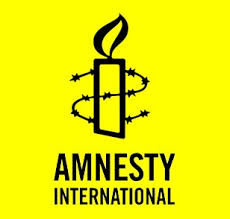Four int’l HR bodies urge govt to immediately amend TJ law in line with Supreme Court ruling

Kathmandu / May 1: The decision by the Supreme Court to reject a petition by the government asking that it review its 2015 ruling against amnesty to people accused of grave conflict-era crimes is an important step in securing truth, justice and reparations for the thousands of victims of the country’s decade-long conflict, four international human rights bodies said in a joint press release on Friday.
The four organizations – Amnesty International, TRIAL International, International Commission of Jurists (ICJ), and Human Rights Watch – have called upon the government to revise the 2014 Transitional Justice (TJ) Act and ensure its implementation in accordance with the Supreme Court’s judgments, so as to assure access to justice for the victims of conflict-era abuses, according to the press release.
“With the Supreme Court’s decision, there can be no further excuse for government backsliding on ensuring truth, justice, reparations and guarantees of non-recurrence. The government should immediately amend the Enforced Disappearances Enquiry, Truth and Reconciliation Commission Act, 2014 in line with the Supreme Court’s orders and its own international obligations,” Biraj Patnaik, South Asia director at Amnesty International, has been quoted in the press release as saying.
With its latest ruling, the Supreme Court has upheld the principle that there can be no amnesty for those suspected of criminal responsibility for crimes under international law and human rights violations, the four international human rights bodies concluded.
“The request filed by the Nepal government to review the decision of the Supreme Court was another attempt to evade the real issue: accountability for mass human rights violations. We are delighted that the Supreme Court held its ground and reaffirmed the importance of fair and efficient transitional justice mechanisms,” Cristina Cariello, the Head of Nepal Program at TRIAL International, has been quoted as saying.
The four international rights bodies have repeatedly expressed concerns about the faltering transitional justice process. Besides the failure to amend the law to uphold the basic principles of justice, there have been long delays and repeated political interference in appointments to the two transitional justice commissions.
“Over the past decade, the Supreme Court of Nepal has produced some of the most human rights compliant jurisprudence in South Asia. This petition cynically sought to have the court undermine its own judgement, so that the government could sidestep its responsibility to provide accountability for conflict-related human rights violations,” said Frederick Rawski, ICJ Asia Pacific Director. “The government has no excuse for not immediately amending the transitional justice legal framework so that it is consistent with the court’s jurisprudence and Nepal’s international legal obligations.”
An effective transitional justice system requires strong legal foundations consistent with international law and standards, and the political will to address the demands of victims of the conflict, the organizations said.
“When Nepal stood for election to the United Nations Human Rights Council, the government promised to uphold its human rights obligations, but three years later, as it seeks re-election, there has been nothing but impunity and evasion on transitional justice,” said Meenakshi Ganguly, South Asia director at Human Rights Watch. “These are crimes under international law, subject to universal jurisdiction, and if justice is denied at home, victims may take their cases abroad.”
More than 13 years since the Comprehensive Peace Agreement of November 2006 promised justice to the victims, no one has been held accountable for any conflict-era crime.
The armed conflict between the Maoists and government forces ended in 2006, but the victims of serious abuses by both sides are still awaiting justice, accountability and reparations.
Nepal’s TJ law, which was passed by Parliament in April 2014, established a Truth and Reconciliation Commission and a Commission of Investigation on Enforced Disappeared Persons. However, it contained provisions that could allow for amnesty to even those responsible for crimes such as torture, including rape and other sexual violence and ill-treatment and enforced disappearance. On 26 February 2015, the Supreme Court struck down the amnesty provisions and ordered that the act be amended accordingly. However, the government immediately petitioned to overturn the ruling. That petition was rejected by the court on 27 April 2020.
